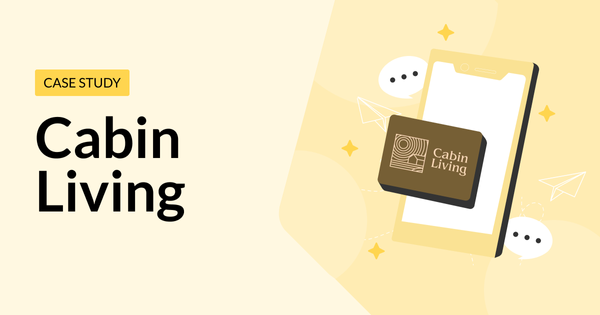Vrbo Travel Insurance: Maximum Protection For Guests and Hosts

With a vast array of properties ranging from cozy cabins to luxurious villas, Vrbo is a leading vacation rental platform. Owned by Expedia, Vrbo offers an alternative to traditional hotels, providing personalized accommodations for memorable travel experiences.
But travel plans change, trips get cancelled, and things can be damaged. These uncertainties make travel and trip cancellation insurance a crucial part of trip planning. Vrbo offers various ways for guests and hosts to get trip cancellation insurance and protect themselves against these unfortunate events.

Does Vrbo Offer Travel Insurance? Yes.
Vrbo’s trip insurance policy (aka Travel Protection) is underwritten by Generali US Branch and looks to protect hosts and guests from trip cancellations or interruptions, including those due to unexpected illness.
Vrbo offers a comprehensive “Book with Confidence Guarantee” to protect travelers throughout their journey. This guarantee includes fraud protection for rental payments, re-booking assistance if a host cancels last minute, and support from a dedicated care team during their stay. This means that when using Vrbo travel insurance, you have access to Generali global assistance.
While 100% of the cost of a purchased trip will be covered in the case of trip interruption, the reimbursement for travel delay is limited.

Guests will also be reimbursed for prepaid, non-refundable fees related to their trip and other reasonable out-of-pocket expenses like local transportation and meals.
If guests did not opt to buy travel insurance at the time of paying for the booking, it is not the end of the world. They will still have a chance to add this option at a later stage via the booking confirmation page or post-booking confirmation emails. Alternatively, they can also go to the online portal of Generali.
Without this Travel Protection plan, guests would lose what they have paid thus far in the event that they should cancel.

In addition to reimbursing prepaid costs in the event of trip cancellation, interruption unexpected illness, or delay, the plan also includes other helpful services like:
- 24-hour emergency assistance services
- ID theft resolution
- Telemedicine service
- Concierge services
This does not include non refundable trip costs.
Insuring Against Property Damage
Vrbo also offers a Damage Protection plan. In the event of accidental damage to the vacation rental property, the Damage Protection option offered by Vrbo can help to safeguard guests against extra expenses.

Not only is it convenient, but also affordable. For only $59, guests can get coverage of up to $1,500. This way, guests are also covered in case the property that they were staying at was damaged accidentally and the refundable deposit is withheld.
All in all, this option is ideal for big groups or families traveling with kids (or fur babies). It is also strongly recommended for guests who have booked a long-term stay or will be staying at a luxury rental.
How to Make an Insurance Claim
In the unfortunate event that you need to claim on your travel insurance, rest assured that the process is easy. All you need to do is to complete a claim form, attach the necessary documentation, and submit it to the claims department at Generali Global Assistance.
What’s more, those who are unhappy with Vrbo travel insurance can also cancel the coverage. To receive a full refund, it needs to be canceled within 10 days of purchase.
Vrbo’s Insurance Coverage Levels

Vrbo offers three levels of travel insurance coverage through CSA Travel Protection, underwritten by Generali USA:
- Prime: Basic coverage for trip cancellations and interruptions.
- Enhanced: Includes additional benefits like travel delay and baggage coverage.
- Elite: Comprehensive coverage with higher benefit limits.
Coverage Limitations
It’s essential to recognize that Vrbo’s travel protection does not cover:
- Medical Expenses: Any medical issues or injuries during the trip. You will need to consider a third party for any emergency medical expenses.
- Cancellation for Any Reason: Policies do not include a cancel-for-any-reason clause.
While Vrbo’s travel insurance policy might not cover all possible situations, it does offer an additional damage protection program that includes personal liability for accidental damage. Guests will have a hard time finding this option with a third-party insurance provider.

How Can Hosts Protect Themselves?
While Vrbo’s core intention is to ensure the protection of guests, there are added ways in which hosts can safeguard their short-term rental business.
Here are two available options for what Vrbo insurance covers for hosts:
A refundable damage deposit
A Vrbo property damage deposit covers damage during a guest’s stay, with the host setting the amount charged at booking. This fee appears alongside other fees, like cleaning and service charges, and is paid upfront by guests. Vrbo holds the deposit for the duration of the stay. Vrbo recommends damage protection as accidents are inevitable and you don’t want to find yourself without coverage.
If damage occurs, you have 14 days after checkout to file a claim. If no claim is submitted, the deposit is automatically refunded to the guest.
For partial claims, the remaining balance is returned to the guest within a week.
Keep a card on file
This approach is currently the default damage deposit policy of Vrbo. Basically, by opting to keep a card on file, the rental platform will save the credit card details of a guest on their system.
Similarly to when a refundable damage deposit was charged, a host will then have up to 14 days after checkout to submit a damage claim. If a claim was filed, Vrbo will take it upon themselves to notify the guest by sending them an email with the amount that is claimed as well as a description of the damage.

If you are worried about how secure this option is, you can rest assured knowing that Vrbo will cover the damage if the credit card has reached its limit or has expired.
Should Hosts Get Extra Third-party Insurance for Vacation Rentals?
In addition to charging a refundable damage deposit or asking Vrbo to keep a card on file, short-term rental hosts are strongly urged to invest in additional third-party vacation rental insurance.
While Vrbo offers attractive liability insurance for damage to another person’s property or traveler injury, this, too, has exclusions.
What to Consider with Third-Party Insurance
When evaluating third-party insurance coverage options, consider what is and isn’t covered. Key factors include:
- Cancellation Reasons: Ensure the policy covers cancellations for reasons relevant to your trip.
- Medical Coverage: Verify if medical emergency medical evacuation benefits are included.
- Property Protection: Assess coverage for potential damages to the rental property.
- Exclusions: Understand what scenarios are not covered by the policy.

Third-party Alternative Insurance Providers
In the US, the platform officially endorses Proper Insurance as their preferred insurance company, which has a comprehensive home insurance policy that covers them. In the hosting community, Proper is also one of the most popular insurance providers. However, many hosts have commented that they are quite expensive.
If Proper does not fall within your budget, you can also try:
- CBIZ
- Allstate
- Farmers Insurance
- Nationwide
- Safelystay
- RentalGuardian
- Superhog

No Travel Insurance Policy is Perfect
Both guests and hosts are encouraged to sign up for an insurance policy. It might be an extra cost, but it can prevent many tears and headaches.
The reality is that no insurance policy is perfect and you will always find that it lacks coverage in certain areas. It’s up to you to choose the right travel insurance for the cost you are willing to pay. Vrbo insurance is convenient, but additional coverage is a worthy consideration. Just remember to read the fine print.

Final Thoughts
Opting for Vrbo travel insurance is a smart move for anyone involved in vacation rentals. While no insurance plan can cover every possible scenario, combining Vrbo’s offerings with third-party insurance can provide a more comprehensive safety net. Thoroughly reviewing each policy will ensure that you and your guests are well-protected throughout the travel experience. For more detailed information, visit the Vrbo Travel Protection page.






